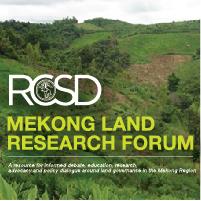Resource information
Over the last decade, forests have played an important role in the transition from war to peace in Cambodia. Forest exploitation financed the continuation of war beyond the Cold War and regional dynamics, yet it also stimulated co-operation between conflicting parties. Timber represented a key stake in the rapacious transition from the (benign) socialism of the post-Khmer Rouge period to (exclusionary) capitalism, thereby becoming the most politicized resource of a reconstruction process that has failed to be either as green or as democratic as the international community had hoped. This article explores the social networks and power politics shaping forest exploitation, with the aim of casting light on the politics of transition. It also scrutinizes the unintended consequences of the international community's discourse of democracy, good governance, and sustainable development on forest access rights. The commodification of Cambodian forests is interpreted as a process of transforming nature into money through a political ecology of transition that legitimates an exclusionary form of capitalism.


